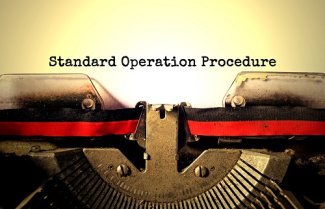Operating Procedures

Price
Add to Cart
Overview
All process safety management (PSM) standards require that accurate, readable and comprehensive operating procedures be written. No matter how automated operations may be a human-machine interface will always exist, and that interface will be controlled through the use of procedures and training. This ebook describes how to write and publish operating procedures. It also shows how to integrate them within an overall process safety management program.
Table of Contents
Definition of Operating Procedures
Operations
Written Instructions
Design or Operating Intent
Definition of Maintenance Procedures
Terminology
Engineering the Solution
Quick Assessment of Operating Procedures
The Users
Experienced Technicians
Less Experienced Technicians
Engineering / Management
DCS / SCADA Programmers
Auditors, Regulators and Inspectors
Translators
Elements of Operational Integrity Management
Workforce Involvement
Knowledge Management
Hazard Identification and Risk Management
Management of Change
Operational Readiness
Emergency Management
Technical Information
Types of Operating Procedure
Steady-State Operating Procedures
Types of Steady-State Procedure
Shift Change
Start-Up Procedures
Shutdown Procedures
Levels of Shutdown
Stand-By
Unit Shutdown
Facility Shutdown
Emergency Shutdown
Turnaround
Trouble Shooting Procedures
Elements of Troubleshooting Procedures
Structure of Troubleshooting Procedures
Temporary Operating Procedures
Batch Procedures
Standard Operating Procedures
Maintenance Procedures
Job Safe Practices
Software Analogy
Modular Design
Connecting the Modules
If / Then / Else Instructions
Modular Operating Manual
Data Base Structure
Top-Down Development
Prototyping
Limitations of Modularity
Design of an Operating Manual
Adding and Removing Modules
Numbering the Modules
Module Design
The Title Block
Procedure Name
Module Number
Purpose of the Procedure
Revision Number
Date of Revision
Covered Persons
Company / Facility
Safe Upper and Lower Limits
Special Safety Items
Equipment Information
Training
The Operating Task Instructions
Step Number Column
Person
Action
Discussion / Illustration
The Authorization Block
Written By
Approval — Superintendent
Approval — Manager
Authorization Sheet
Overall Module
Links to Other Procedures and Manuals
Links to Technical Information
Training
Two-Page Modules
Content Development
Level of Detail
Level 1 Overview / Checklists
Level 2 Equipment Description
Level 3 Valve Detail
Sources of Information
Existing Procedures
Technician Interviews
Engineering Information
Vendor Manuals
Process Hazards Analyses
The Procedures-Writing Team
Writing and Publishing
Project Organization
1. Define the Scope of Work
Physical Area / Equipment Covered
Users
Types of Procedure
Job Task Analysis
Design of the Manual
Regulations / Standards
Writer’s Guide
2. Create the Team
Steering Committee
Project Manager
Project Lead
Technicians
Technology Expert
Interviewer-Writers
Publisher / Webmaster
3 Develop a Detailed Plan
Schedule and Progress Metric
Budget
Prepare the SOPs
4 Collect Information
Operator Interviews
Existing Procedures / Vendor Manuals
Logbooks
5. Write the Procedures
Draft Releases
Plan to Throw One Away - You Will Anyway
6. Review and Signature
7. Publish
Potential Difficulties
Poorly Defined Goals
Too Many People
Extended Review Cycle
Lack of Signatures
Maintaining the Procedures
Procedures Modification Process
Organization
Writing Guidelines
Vigorous Writing
Minimalist Writing
Short, Pithy Instructions
Avoid Repetition of Instructions
Omit Needless Words
Omit Adverbs
Short and Old Words
Avoid Wordy Phrases and Padded Syllables
Writing Style
Imperative Tense
Active Voice
Reading Grade Level
List Instructions Singly
Implied Instructions
Bulleted Lists
Conditional Instructions
Positive / Negative Instructions
Vocabulary
Identification of Equipment
Consistency
Should / Would / Could
The Word ‘You’
The Word ‘This’
Arabic Numerals
Adverbs and Adjectives
Articles
Humor
Spelling
Latinate Abbreviations
Apostrophes
Ambiguous Words
Repetition of Messages
Danger, Warning, Caution, Note
Proofreader Marks
Illustrations
Photographs
P&IDs
Iconic Flow Diagrams / Schematics
Maps / Plot Plans
Publishing
Color
White Space
Fonts
Paragraph Formatting
Emphasis Techniques
Heading
Page Numbering
Single-Sided versus Double-Sided Printing
Indexing
Glossary
The Binder
Multiple Languages
Copyright © Ian Sutton. 2018. All Rights Reserved.
